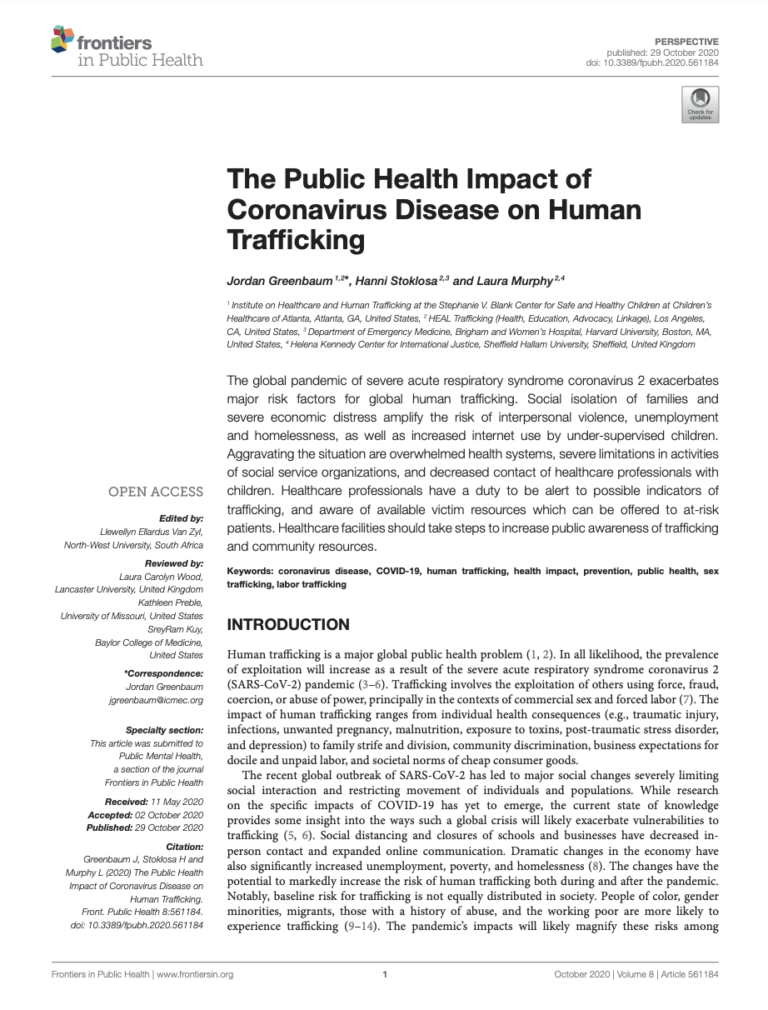Written by Jordan Greenbaum, Hanni Stoklosa, and Laura Murphy.
The global pandemic of severe acute respiratory syndrome coronavirus exacerbates major risk factors for global human trafficking. Social isolation of families and severe economic distress amplify the risk of interpersonal violence, unemployment and homelessness, as well as increased internet use by under-supervised children. Aggravating the situation are overwhelmed health systems, severe limitations in activities of social service organisations, and decreased contact of healthcare professionals with children. Healthcare professionals have a duty to be alert to possible indicators of trafficking, and aware of available victim resources which can be offered to at-risk patients. Healthcare facilities should take steps to increase public awareness of trafficking and community resources.

